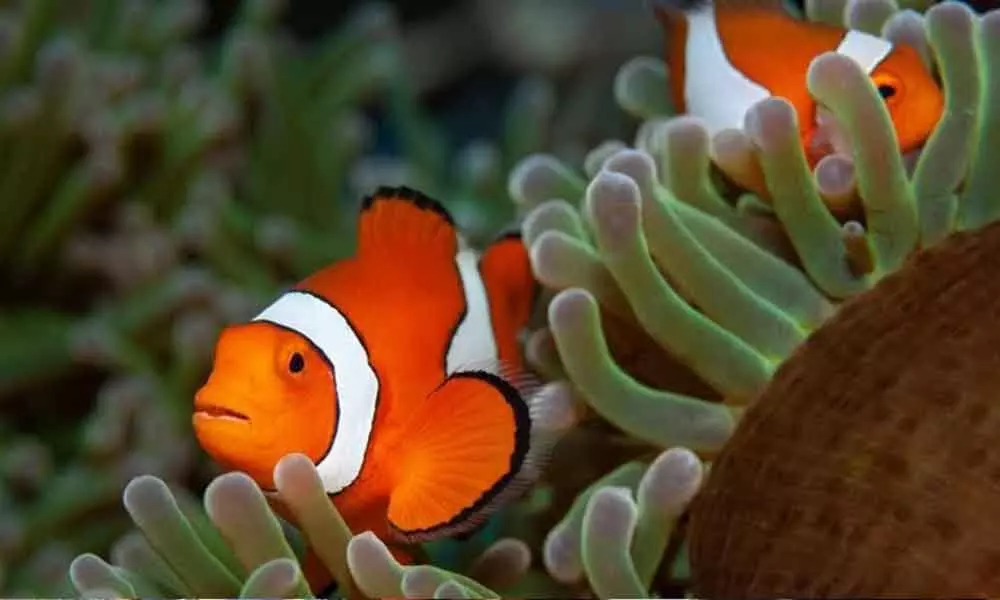Live
- Karnataka gets third govt cardiology hospital
- Minister Ramalinga’s efforts help safeguard over 10,000 acres of temple Land
- Laxminarayan College gets NAAC B+ accreditation
- Champions Trophy: India vs Pakistan Match Likely to Be Held on This Date
- Tigress Zeenat spotted in Purulia
- Collectors asked for proper assessment of crop loss
- Teachers are pillars of social development: Sudheer Reddy
- Sandhya Theater Stampede Incident: Rahul Ramakrishna Retracts Comments on Issue
- Ramanujan’s contributions to Mathematics hailed
- Garena Free Fire MAX Redeem Codes for December 2024: Unlock Skins, Weapons, and More
Just In
Nemo fish may not adapt to changing climate: Study


The long-term survival of clownfish - made famous by the Hollywood movie Finding Nemo - depends more on the sea anemone neighbourhood they live in than on their own genes, according to a first-of-its-kind study which suggests that climate change may make it hard for both the fish and its host to survive.
The long-term survival of clownfish - made famous by the Hollywood movie Finding Nemo - depends more on the sea anemone neighbourhood they live in than on their own genes, according to a first-of-its-kind study which suggests that climate change may make it hard for both the fish and its host to survive.
The researchers, including those from James Cook University in Australia, conducted a 10-year long genetic study of clownfish population in the reefs of Papua New Guinea which lived in a mutualistic association with one of two host sea anemone species - Heteractis magnifica and Stichodactyla gigantea. They established family trees spanning five generations for the entire clownfish population at an island in Kimbe Bay - a well-known biodiversity hotspot.
The scientists assessed the ability of the population to persist changing environmental conditions, and the genetic potential of individual clownfish to adapt to the increasingly rapid changes. The study, published in the journal Ecology Letters, noted that the reproductive success of the clownfish depends almost entirely on having a high-quality anemone home. "There are no particular genetic variants that contribute more offspring to the next generation. The quality of the host anemone contributes most to the ability of the clownfish to renew its population," said study co-author Geoff Jones from James Cook University. The study noted that the clownfish population can persist if high-quality anemones remain healthy. The researchers said the anemones themselves lived with symbiotic algae, which leave when under stress. According to the study, if the algae stay away long enough, the anemone starves to death, killing the clownfish home at the same time.
The researchers said until now long-term genetic data for individuals within a marine population were incredibly rare. "But now that we have it, we find that Nemo is at the mercy of a habitat that is degrading more and more every year," said study co-author Serge Planes from the National Centre of Scientific Research (CNRS) in France. "To expect a clownfish to genetically adapt at a pace which would allow it to persist is unreasonable," Planes said. According to the researchers, the fate of clownfish depends on the ability of humans to maintain the quality of their habitat.

© 2024 Hyderabad Media House Limited/The Hans India. All rights reserved. Powered by hocalwire.com






